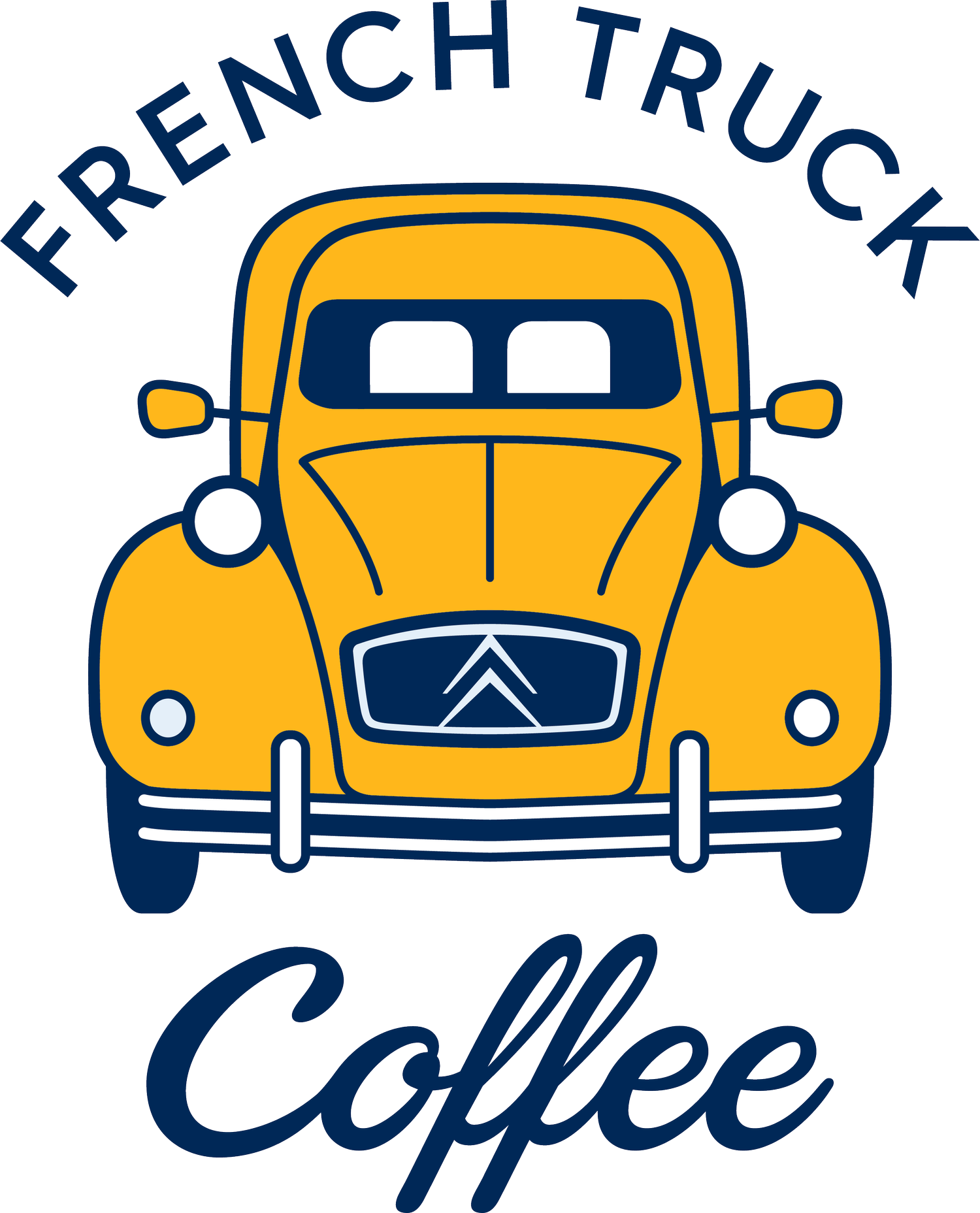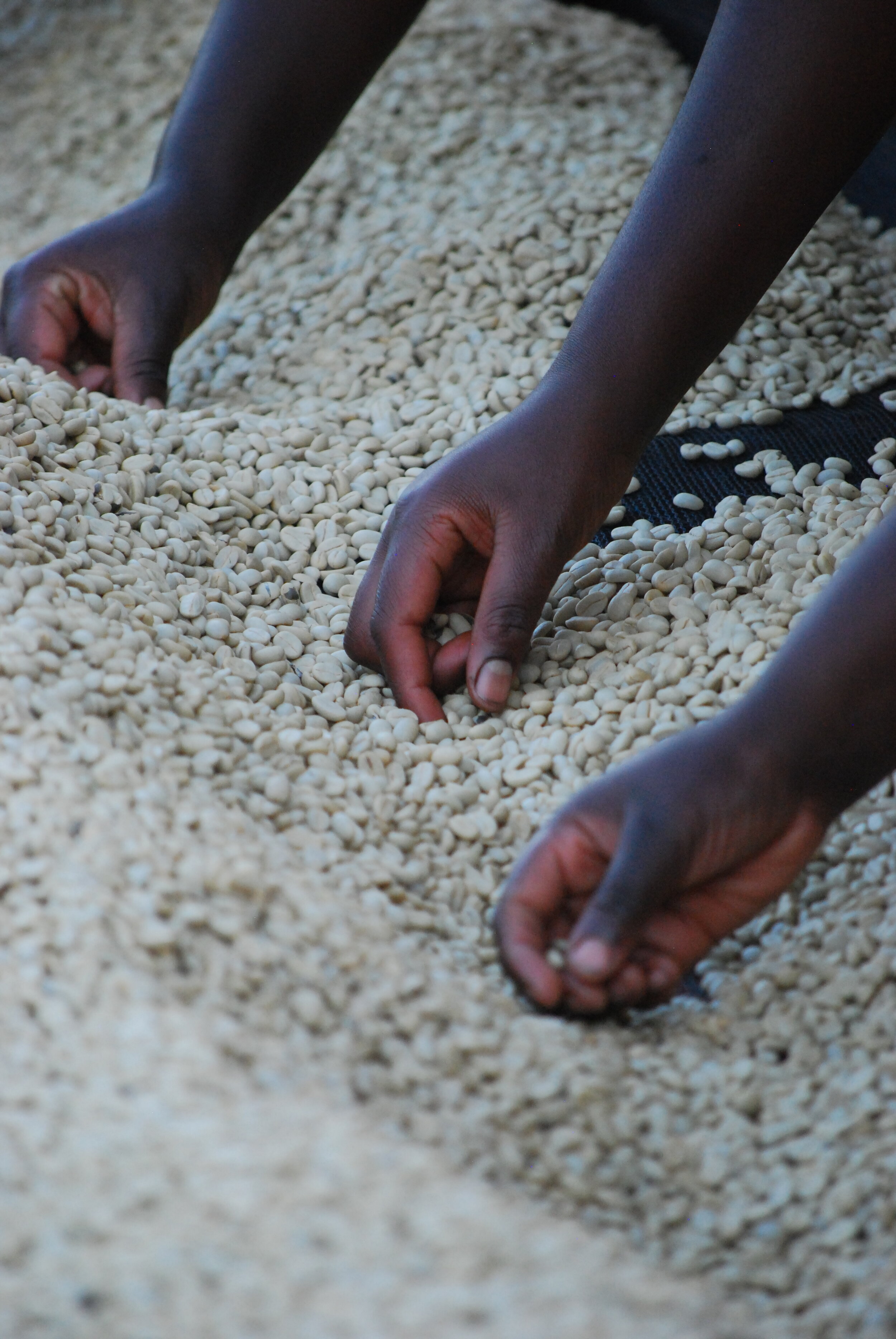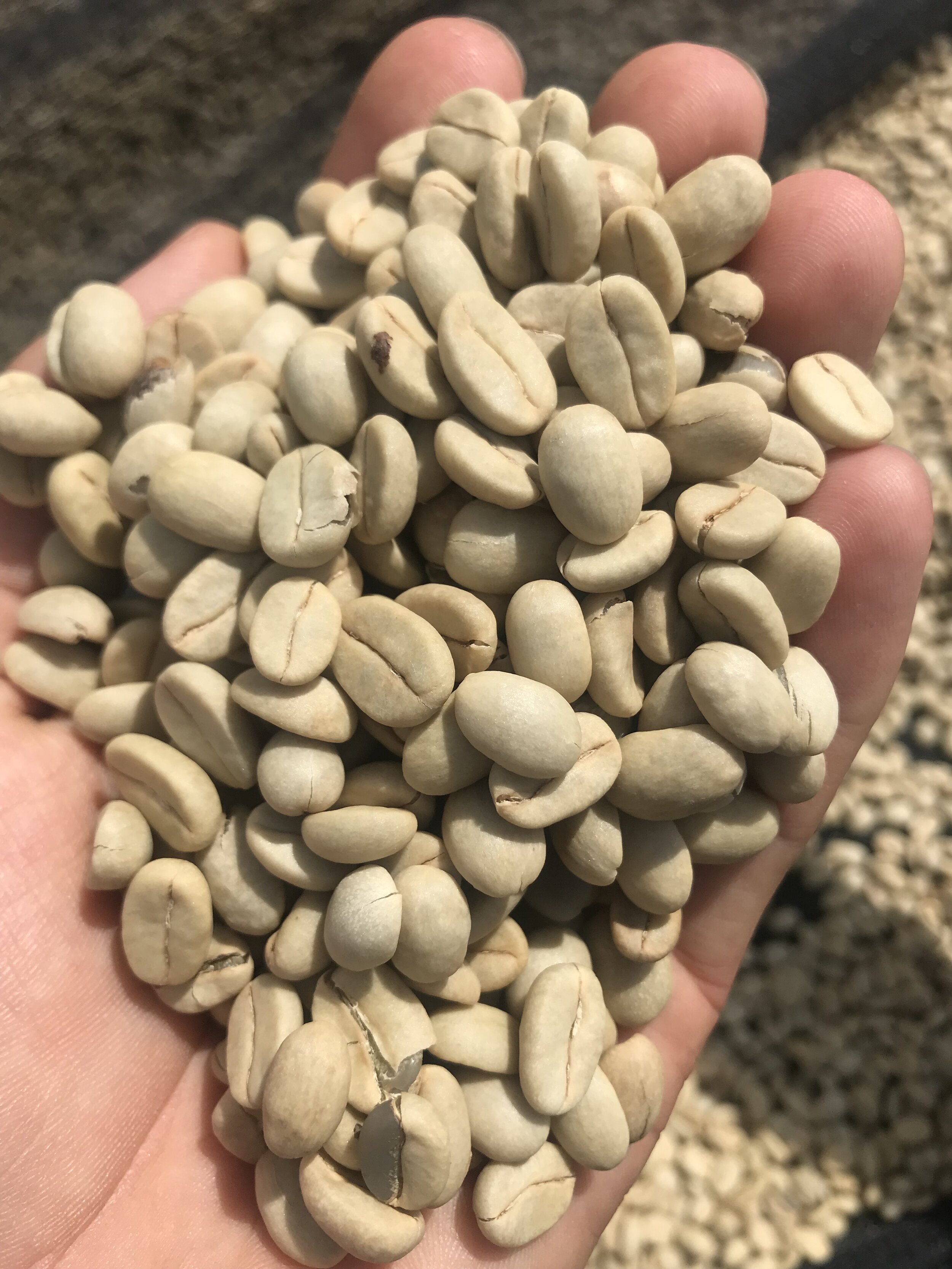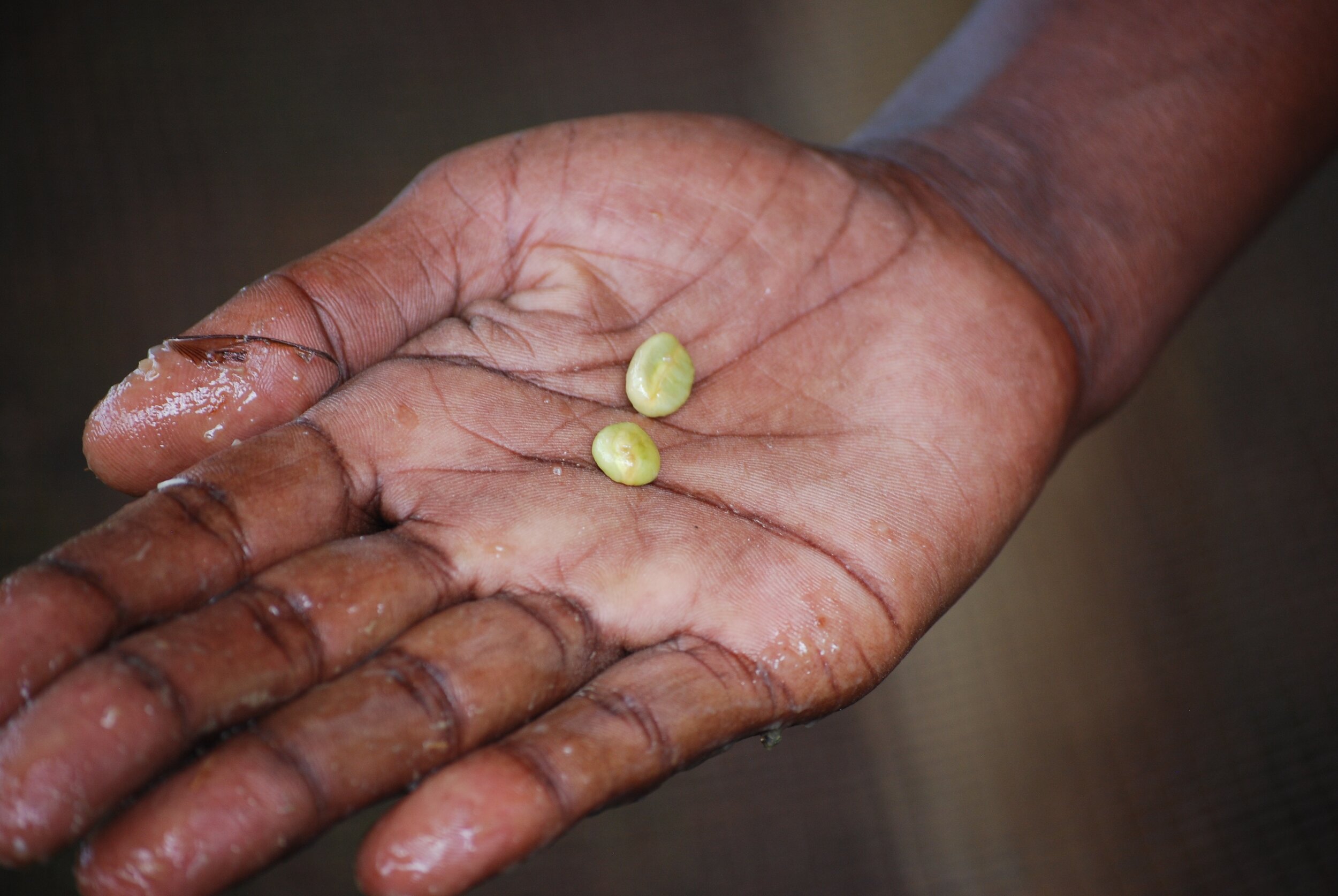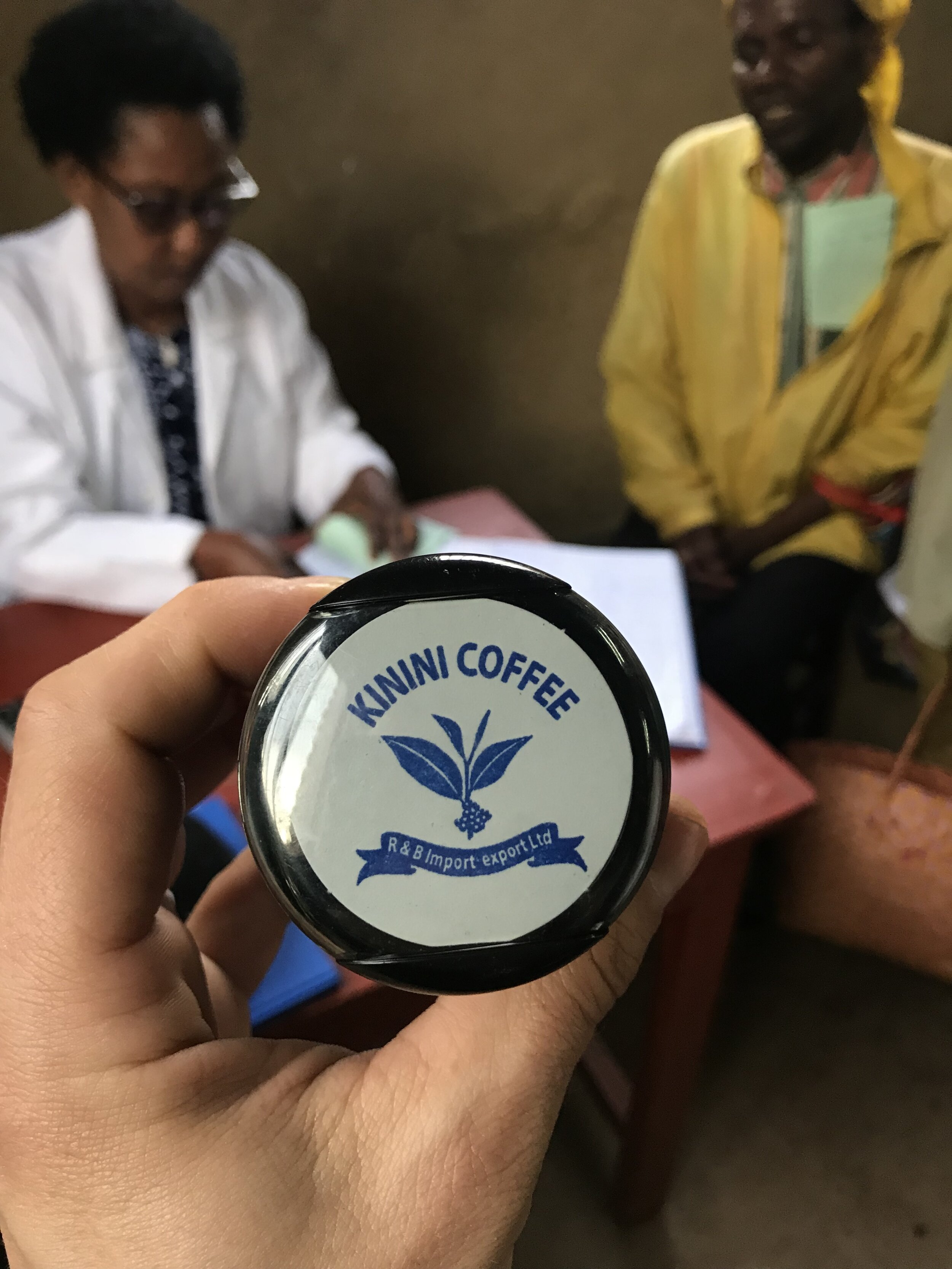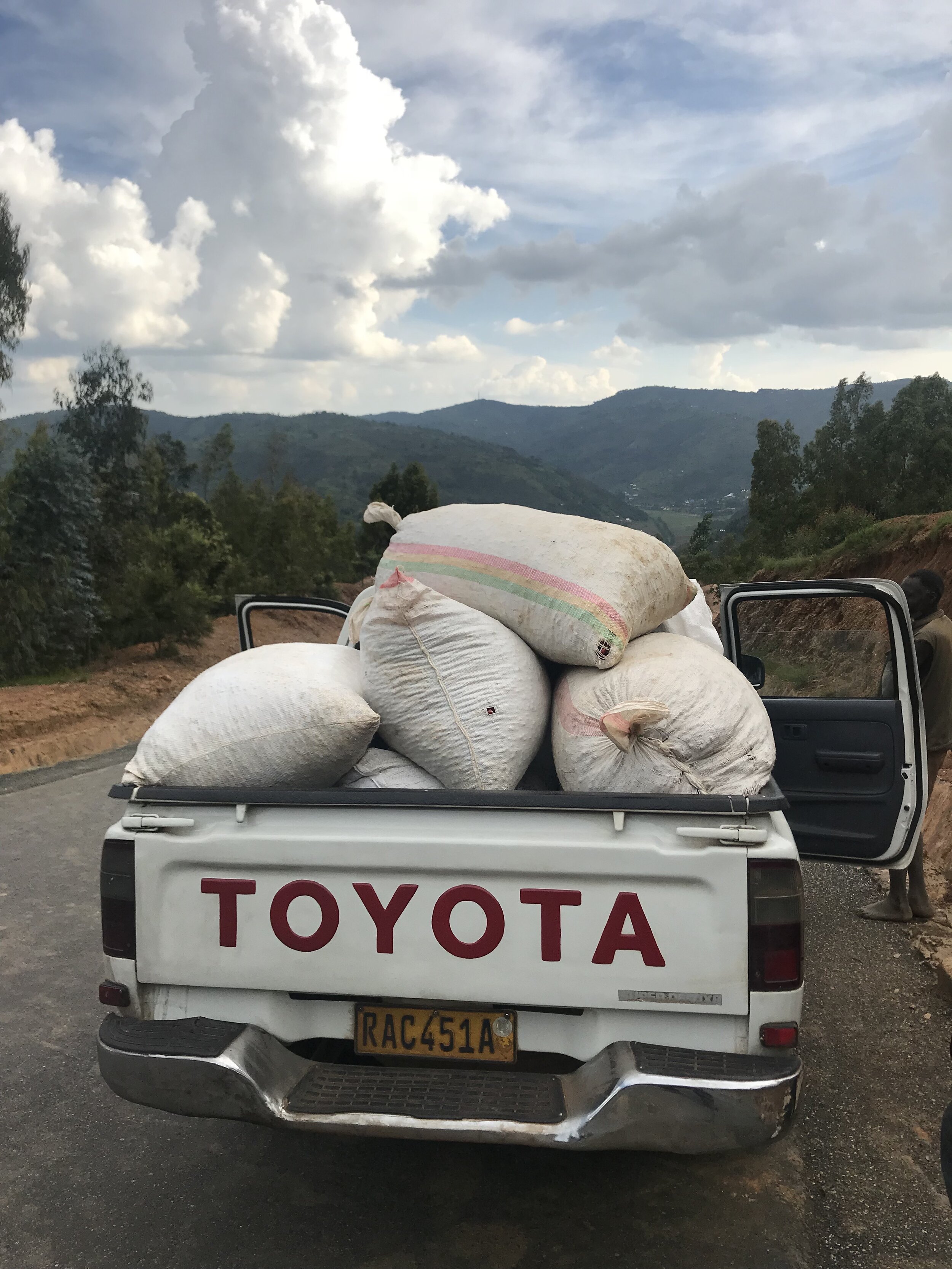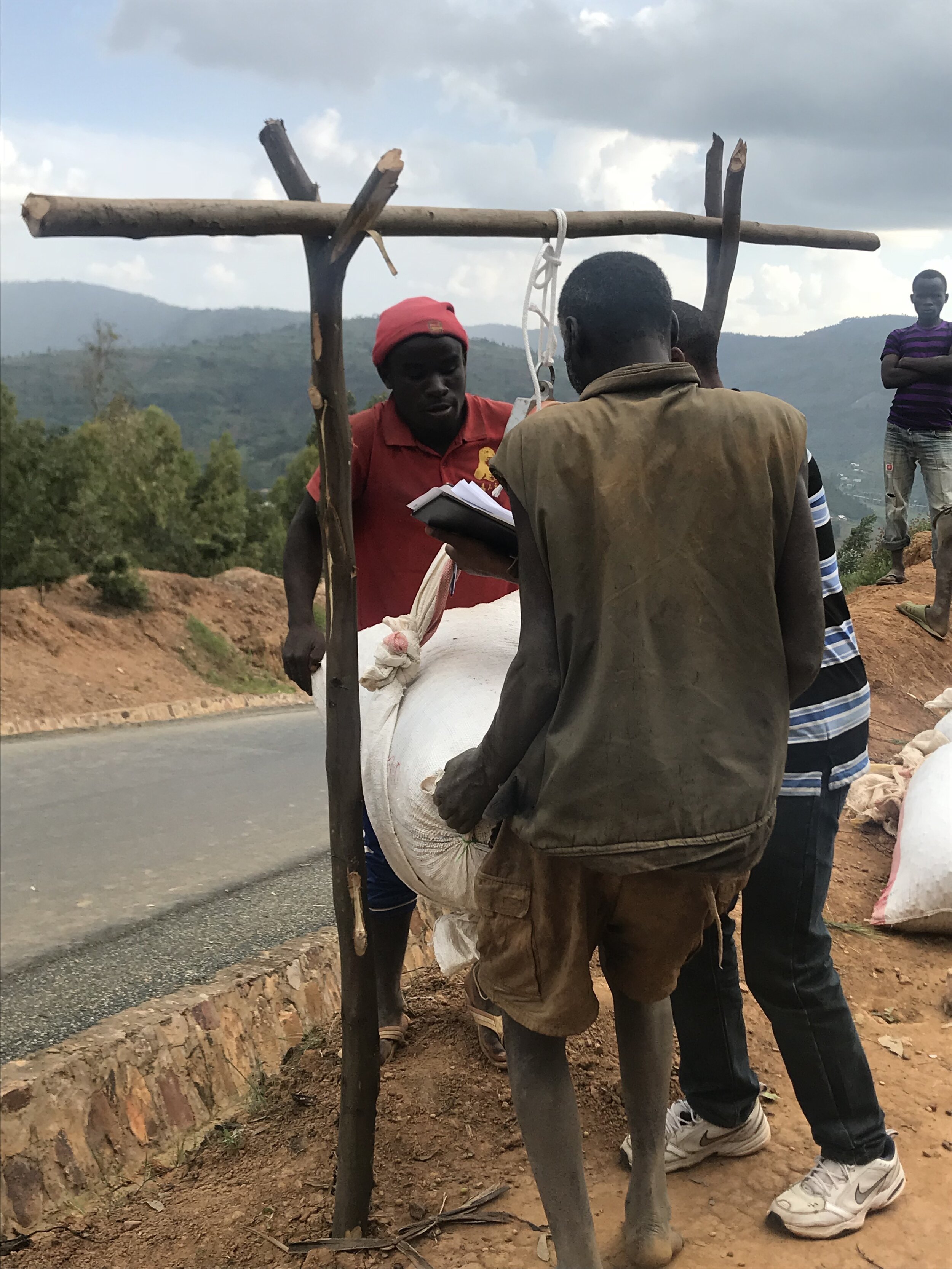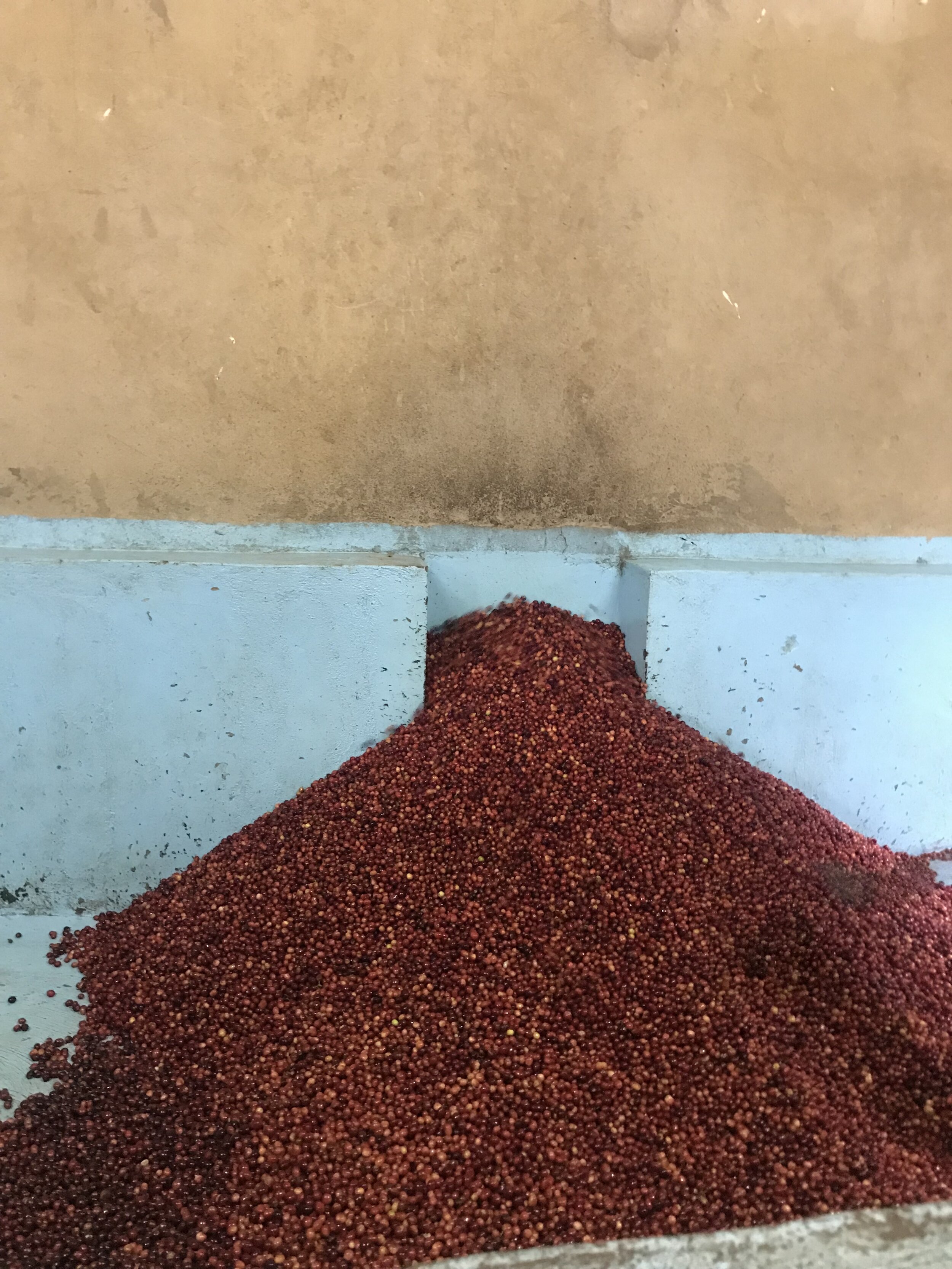RWANDA KININI VILLAGE
This is our second year in a row offering this washed coffee from Rwanda and the Kinini Village. The story behind this coffee and the Kinini village is truly amazing. It is one of the most inspiring stories we have come across in the world of coffee. From a societal standpoint this offering has the most impactful reach of any coffee we have ever purchased. That impact is also geared towards sustainability in a way that is very innovative. It is a reminder that good coffee comes from good people. The coffee is tasting great again this year, as the Kinini Village has shown remarkable consistency from year to year. We are honored to be a part of it for the second year in a row. Below is the original newsletter for some more context on how this project came together.
Rwanda is an origin that we haven't had much experience with, so we wanted to go deep on this origin report. Let's start from the beginning. Like most East African countries (with the exception of Ethiopia), coffee trees were planted by the colonial government in the early 1900’s. Coffee in Europe was booming at this time and in order to supply the growing demand, high yield, low cost varieties were planted all over the country. The intention was for coffee to be a cheap commodity available in abundance. The colonial government held strict mandates on taxes and exports over the farmers, practically enslaving them to the industry.
While coffee became the staple agricultural export by the 1990s, its production, along with the national econom in general, was devastated by the genocide in 1994. Nearly 1 million people were killed in the national tragedy, which stalled development and slowed progress for nearly a decade. In response to this terrible tragedy, targeted programs initiated by the government in the early 2000s encouraged Rwandans to use specialty coffee as one of the means to recover and to create a new agricultural market. A pathway out of poverty. The construction of the first washing station with international support was in 2004, and the country was the first to host a Cup of Excellence auction, bringing international recognition to the “Land of a Thousand Hills'' as a potential producer of exceptional quality.
Today, this tiny country (roughly the size of Maryland), has a reputation for special quality and unique characteristics. We need to also note the incredible story of its development as a specialty-coffee origin since the genocide, which has made Rwanda a stand out among African origins.
It is under this context that we get to zoom in and learn about the amazing story of the Kinini Coffee Cooperative.
Dreamers. That's what everyone called Jacquie Turner and Malcom Clear when they wanted to start a school for children in Eastern Rwanda 10 years ago. Driven by the desire to help the children of the genocide, they made that dream a reality. As they got to know that community they realized that these children needed much more than just education, and consequently they lobbied the local government and international donors to support the construction of a local pharmacy, micro-finance credit institution, and other services to support the community that supports these children. What these two have accomplished for that community would be more than enough for any of us to hang our hat on and rest on our laurels, but they were not satisfied. Jacquie wanted to do more to help her fellow Rwandans.
So she and Malcom started dreaming again, and started to dream this time of coffee. They wanted to find a way to have generational impact on communities without having to continually fundraise money for aid projects. At this time they didn’t know anything about coffee, but they knew that the Rwandan government was supporting a transition towards specialty coffee and wanted to see how far they could leverage that goodwill towards helping a community.
They spent years soliciting advice from experts across the coffee industry and traveled all over Rwanda to look for a community that was interested in such a venture and was conducive for growing good coffee. After countless hours walking around farms with agronomists and soil scientists, they settled on an area just an hour north of Kigali. That is not only stunning for its views but its high elevation dwarfs even the well-known Lake Kivu region. There was only one issue: there wasn't much coffee being grown here.
So they dreamed up a solution. What if...they gave farmers coffee to grow? What if...they gave farmers technical support on how to grow good coffee? What if...they gave farmers a washing station to process it? What if...they gave farmers a dry mill to further process it? What if...they set up an export company in Rwanda to sell it, and an import company in the UK to own it even further? What if...10% of the profits went directly to development project investments (in education, health, etc). What if...they helped organize these farmers so they could manage themselves and eventually the business without them? What if.... It was a lot of dreaming that was met with a lot of doors being slammed in their face. Setbacks that would deter the most resilient of us did nothing to dissuade these two from their goal. After years of lobbying the local government, the Development Bank of Rwanda, farmers themselves, and countless other parties, their project was finally green-lit in 2014.
The structure of this project was unprecedented. Kinini Coffee signed a “lease” on parcels of land owned by various farmers throughout the area. This lease stipulated that Kinini would provide all these farmers with coffee trees, training, and organization. All the farmers had to do was agree to deliver these cherries to the Kinini Washing
station when they fruited in the future, for which they would be paid. The parcels chosen were for the most part on unused land that wasn't being farmed yet. The due-diligence done on this lease (printed in triplicate for every farmer) by the lawyers at the local and federal government to make sure farmers were not being taken advantage of, took over a year. They had never seen anything like it. Malcolm and Jacquie started distributing coffee seedlings to farmers, setting up trainings, building their washing station, and organizing farmers. Their learning curve was meteoric. They had no idea how their coffee was going to taste, but they poured their heart and soul into it anyway.
The result? An incredibly delicious coffee that is very complex and structured with wonderful tasting notes of brown sugar. All the care taken at the farm, at the washing station, during cherry collection and on the drying tables paid off.
We are so excited to be a part of this project. It is literally years in the making, and we are honored to showcase the coffee and this incredible story.
Tasting Notes:
Brown Sugar, Cola, Melon, Citrus
